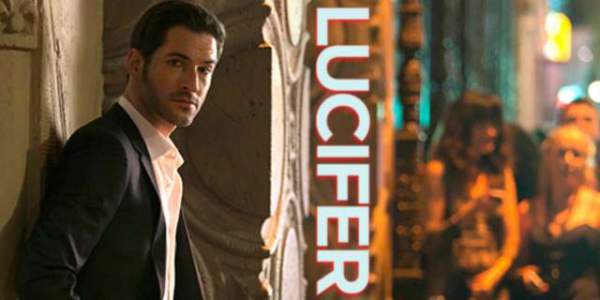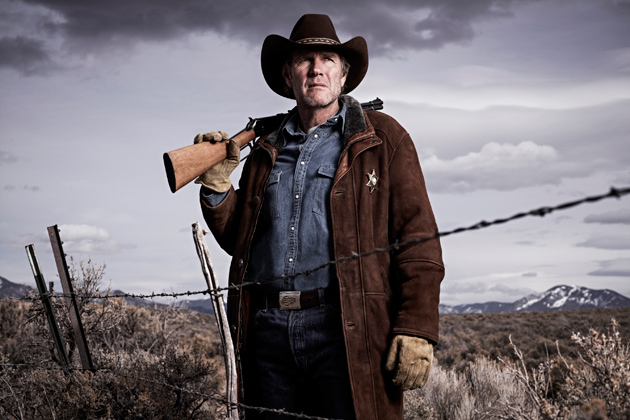What do you do when you’re a successful global hotel investment event company, and you want to branch out into entertainment? If you’re Jim Burba and Bob Hayes, of Burba Hotel Network (BHN), you co-produce a quirky, highly anticipated feature film. The film they’re backing, Rival Pictures’ Space Station 76, is set to premiere at SXSW on March 8th, and it’s already creating buzz with the high profile cast of Matt Bomer, Liv Tyler and Patrick Wilson, to name a few of the talent involved. Written and directed by Jack Plotnick, the 70’s style space-age science fiction flick was an obvious choice for Burba and Hayes to support. Whedonopolis had the pleasure of interviewing these gentlemen, who do more than just manage their successful hotel event business. There was talk of asteroids, studio gag orders and the challenge of booking hotels during conventions, but that’s for another time, perhaps. Rest assured, what follows is a glimpse into their impressive careers and genuinely compassionate lifestyle.
It really is all about who you know in the business when it comes to film making.
Susie M: When did you begin the venture into entertainment?
Jim Burba: It started 4-5 years ago when we were approached by several reality TV show people about their interest in launching things that were hospitality or hotel related. They were coming to us as a resource, so we started talking to them and giving them names and giving them ideas, and I think the awareness of the similarity of producing something hit us. Producing a show or producing a conference both have similar elements; our events are live – shows are taped, but they can be live – you have to raise money, you have to have a concept, you have to sell the tickets and you hope people buy it. So, those basic elements of what we do are what these people were trying to do in the television world, so we got to know them. That opened up awareness and thinking and we realized, they’re doing the same things we’re doing – they’re just doing it on a screen and we’re doing it on a stage.
Bob Hayes: And we know some people in entertainment and they talked about it a lot, about what happens and what doesn’t happen, so one thing led to another. We’re all about looking for opportunity and creating opportunity, so opportunities came along and we jumped at them.
SM: You came on as co-producers of the film during the post-production phase, correct?
BH: Yes, we met Jack Plotnick, the director, about a year ago at an event we were doing in Palm Springs for Lorna Luft, Judy Garland’s daughter. It was one of those serendipitous things where Seth Rudetsky came to the event, he’s a Broadway guy, and he brought his friend Jack. Jack mentioned this film he was working on, Space Station 76, and was talking all about it. And then we spoke with Jack about it the next week and he said he was looking for some help with post-production on the film and would we be interested in joining the production team. We said, sure, we’ll take a look. One thing led to another and we became involved. The filming had been done; it was a very short shoot – I think about 2 weeks – and kind of under the radar. It kind of all just happened, and that’s how we got involved.
SM: Have you seen the film yet?
BH: Yes! We’ve seen a version of it. [laughs] It’s still morphing a little bit. In fact we’re going up to Skywalker Ranch next week where they’re going to do some more visual effects and sounds effects editing. We’re excited.
SM: Considering the style of the film itself, even just from the couple of stills they’ve released, the color and everything is just so 70’s.
BH: It’s interesting because we’re both products of the 70’s. I graduated from high school in 1976, so I can kind of relate to all that’s going on into the movie, and the sets, the colors and costumes. That was an attraction, I think. The entire movie is a character study. Think about the 1970’s and what men and women were going through at that time. Women were trying to get out of the house and have careers, and men were struggling with that and it’s like an identity crisis in the 70’s. The movie kind of plays off of that.
SM: You know Jack Plotnick, but had you met any of the other cast before? Had you met Matt Bomer?
BH: We’d met Matt in Palm Springs. We have a place out there, and we’re there quite often. Matt had been there 2 years ago receiving an award from the Desert AIDS Project. He was sitting at the next table, so we got to meet him that night.
JB: His table was pretty popular. [laughs]
BH: It always is! [laughs]
JB: There was a constant swarm of people coming to that table.
BH: That night at the awards was the night he kind of came out publicly on stage. And everyone just looked around wondering, did he just do what we thought he just did? This was great, and also surprising at the same time.
JB: Yes, and he was so gracious to everyone who wanted to come up take a picture with him. He wasn’t body-languaging people away, he was just “Sure, sure, sure, whatever” to everyone. Their table was getting bombarded, especially afterwards. I don’t know when they left, if they ever got out of there [laughs], but he couldn’t have been more gracious.
BH: And Jack, I believe, is friends with him from way back, along with Patrick Wilson. And I think Liv Tyler knows Patrick, so everybody sort of knows everyone, so that’s how everybody came together. And Jack wrote the script based on a play he’d written, many years ago, that Kali Rocha and the other writers were involved in. It was almost like a family affair.
SM: A lot of great films really come from that process. That’s how Joss Whedon works, really. He just kept working with really talented people and he sort of built this army of amazing talent.
BH: Yeah, and that’s kind of how this film came together. Jack always knew this would make a great film. He met Rachel Ward, one of the producers at Rival, at a film festival – maybe Sundance – a couple years ago and they talked about the play and Rachel liked the story, so Rival became interested and one thing led to another.
Aside from the movie, Burba and Hayes are also branching into TV production, starting with an adaptation of Catherine Tondelli’s humorous biography, “Three Coins in the Fountain-Falling in Love through Faith, Family & Frequent Flyer Miles.”
SM: You’re also working on an upcoming project with Catherine Tondelli, correct?
JB: Cathy and I used to work together and that story, the synopsis in the press release, it’s totally true, and I lived that story as a co-worker with her. Her husband, Fausto, is such a doll, and if you could get their personalities to come out in a TV movie that would be amazing, if you could bring that to life it would be fantastic because it’s just so genuine.
BH: Yes, it’s real, it all really happened. It’s a great story, with a great ending. They’re still married and still live in Italy. Making movies is really all about getting the money. That’s what we’re doing now, getting the funding and getting the interest, so we can start pursuing a script.
As life partners, they’re putting their experience of business and a 20+ year partnership into a book they’re writing.
SM: You’re also writing a book at the moment, right?
BH: Yes, we’re writing a book ourselves. It’s a business book based on our lives together as life partners and business partners and how we’ve made it work, and our principals for success and partnerships. We’re really excited about it.
SM: In your experience as businessmen and life partners, would you say that your industry has been more open to working with members of the LGBT community than we often see in day to day life? Sometimes the personal aspect of someone’s lifestyle is one thing, but as far as business goes, commerce is commerce.
JB: Yeah, I think that’s a fair statement. People buy other people’s product because they want it, or they need it. And we’re in a business to business world. People come to our events it is worth their while to be there. If they have beliefs about personal lifestyles, we’ve never seen it. But that doesn’t mean people haven’t said, “Oh, I’m not going to that event because those guys are gay” or anything. It doesn’t mean that hasn’t happened, we’re just not aware of it.
BH: There are a lot of gay people in the hotel industry, so everybody in the industry knows someone who’s gay, it’s not a big shocker. We operate our business, and our lives, as if it isn’t an issue, so we don’t really think about it much. We don’t call attention to being partners, we just do our business and hope everybody respects us for what we do.
They’ve built their career on giving back to the community and using their resources to help others.
SM: Last year, OUT Magazine listed you as one of the 2013 “15 Power Couples You Should Know”, and I was really amazed at how much philanthropic work you do. Not just the money, but the fact that you’re really getting behind all these organizations. It sounds like something you started early on.
BH: Well, our company was built on that foundation of giving back. That was a big thing for us when we first got started. We like doing it, we like connecting with people and helping people. I like to say “the pie gets bigger the more slices you serve.” That’s kind of our philosophy in life, and in business.
JB: The International Tourism Partnership (ITP) was founded by Prince Charles almost 30 years ago as part of a green and sustainable program for the hotel industry, and no one was doing that at the time. Their program, YCI (Youth Career Initiative) finds these kids in financially difficult situations and brings them into hotels, where they work for 6 months and they learn how to dress, train, work the front desk, etc. – all the basic hotel skills. It gives them a job where they never would have had one. YCI is in 12 countries and launched in India a couple of years ago. We were already there, and we knew these guys, so they asked if we could help. And it was more than financial help, it was giving them access to people we know that could be those host hotels. And now they’ve had 3 graduating classes and we’re moving into Latin America with them to bolster the programs there. We had 3 of the students on stage in Delhi a few weeks ago, and what great kids. They were so nervous and also excited at the same time. They talked about what YCI meant to them and their families. We don’t know where it will go, but YCI gives them a chance.
BH: And our philosophy is we like to get involved in either the business we’re in or the community we’re in, or the industry we serve. We like being involved in things. Moving into entertainment, that’s why we got involved in SPARKLE! a fundraiser for The Actors’ Fund. And we signed on with Space Station 76 because they wanted us to become involved in the production and promotion of the film. We had long talks with the producers and Jack about that. We didn’t want to just write you a check and see you later. We wanted to be involved in the process, involved in the movie, and involved with the cast and crew.
SM: So, aside from the possible movie with Catherine, what else is in the works for you in the entertainment arena?
BH: We’re actually reading 3 scripts that were given to us, and we’re considering involvement in those films.
JB: And I have a reality TV idea that is absolutely brilliant! I think. [laughs] I just have to find the time; this one is brilliant… it’s just brilliant! [all laugh] It’s hotel related, but it’s such a different spin and angle. You’ll see what I mean if we can pull this off. I think it’s going to change some paradigms.
SM: We’ll keep an eye out for that!











